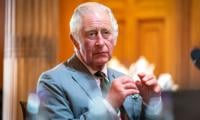ISLAMABAD: Pakistan Tehreek-e-Insaf (PTI) on Tuesday filed an appeal in the Islamabad High Court (IHC), challenging the trial court’s verdict and sentence against party chief Imran Khan, requesting that the court declare the judgment “illegal”.
“It is most respectfully prayed that the Hon’ble Court may graciously be pleased to set aside the impugned judgement dated 05.08.2023, and declare the conviction, sentence imposed upon the Appellant to be illegal and without lawful authority and to acquit the Appellant of the charges framed against him,” the petition read.
A two-member IHC bench, led by IHC Chief Justice Aamer Farooq and Justice Tariq Mehmood Jahangiri, will conduct the hearing on the petition today.
Khan was sentenced to three years in prison and a fine of Rs100,000 by Additional District and Sessions Judge (ADSJ) Humayun Dilawar on August 5, 2023, after the judge found Khan guilty of graft in the Toshakhana case — a move likely to bar him from standing in elections due later this year.
Following the arrest of PTI chief, this is the third petition the party has filed — one of which was filed in the Supreme Court. While the previous petition in the IHC sought to have Khan transferred to Adiala Jail from Attock Jail, where he is currently incarcerated, this 22-page-long petition seeks the denunciation and overturning of the conviction altogether on a number of grounds.
One of the reasons cited in the petition for the request is that the impugned judgment is “totally misdirected”, failing to consider that for purposes of proving a criminal charge the actus reus and the men reus is the responsibility of the prosecution, not the defendant. “The prosecution has miserably failed to discharge its onus against the appellant and, as such, the impugned judgement is unwarranted by law,” the petition added.
Moreover, the petition contended that ADSJ Dilawar’s verdict had been based on “hyper-technical” grounds and “misreading”.
“The learned trial judge has returned a finding of guilt against the accused on hyper-technical grounds, and that too by misreading and misconceiving the law, and not on the basis of any tangible evidence in support of the charge framed against the accused, which evidence, nonetheless, is utterly lacking in the instant case.”
The petition also alleged that the judge had not given due consideration to a number of pertinent matters, including the fact that Khan’s accountant has mentioned the cost at which these assets were acquired in the “relevant column of Form-B”, under “Precious Items” as per his expertise.
“As a matter of fact, all that the learned judge has to say regarding the defence of the appellant is to make a cursory almost derisive reference to it,” the complaint added.
The petition also alleged that the trial was not fair and the verdict — “tainted with bias and a “nullity in the eye of the law” — pre-decided in that it “seemingly took him [the judge] just 30 minutes to dictate more than 35 pages which constitute the impugned judgment”.
“The impugned judgment having been written even before hearing the appellant’s counsel in support of the defence is a nullity in the eye of the law and liable to be set aside as such,” the petition contended.
The show cause notice was issued under Section 7 and Section 5 of the PEEDA Act, 2006
According to government sources, the volume of Pakistan-Afghan bilateral trade in July, August 2024 was $27.80 million
Two sugar mills, owned by Tareen, have been allotted quota of 4,028 metric tonnes and 3,161 metric tonnes
“It would be more appropriate for your client to approach the election tribunal,” the judge suggests
The committee chairman pointed out discrepancies in government communications regarding the USC’s future
Justice Tariq Mehmood Jahangiri says if court order is not implemented, interior secretary should appear at the next...







